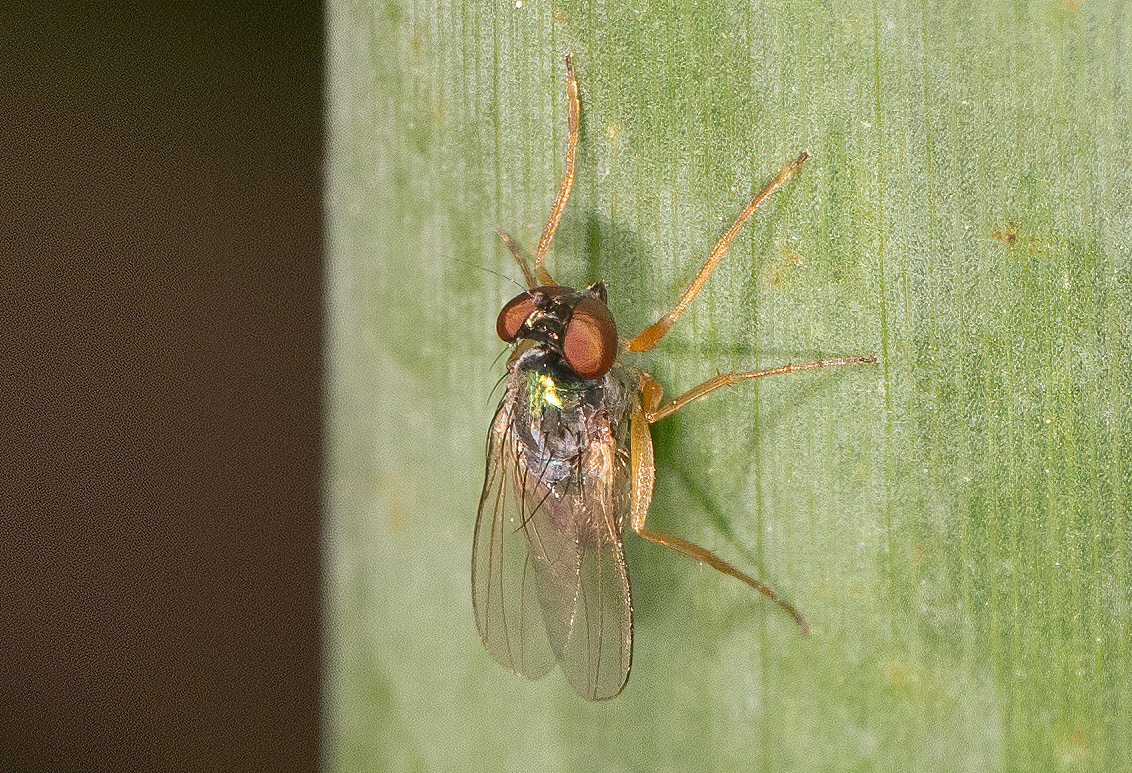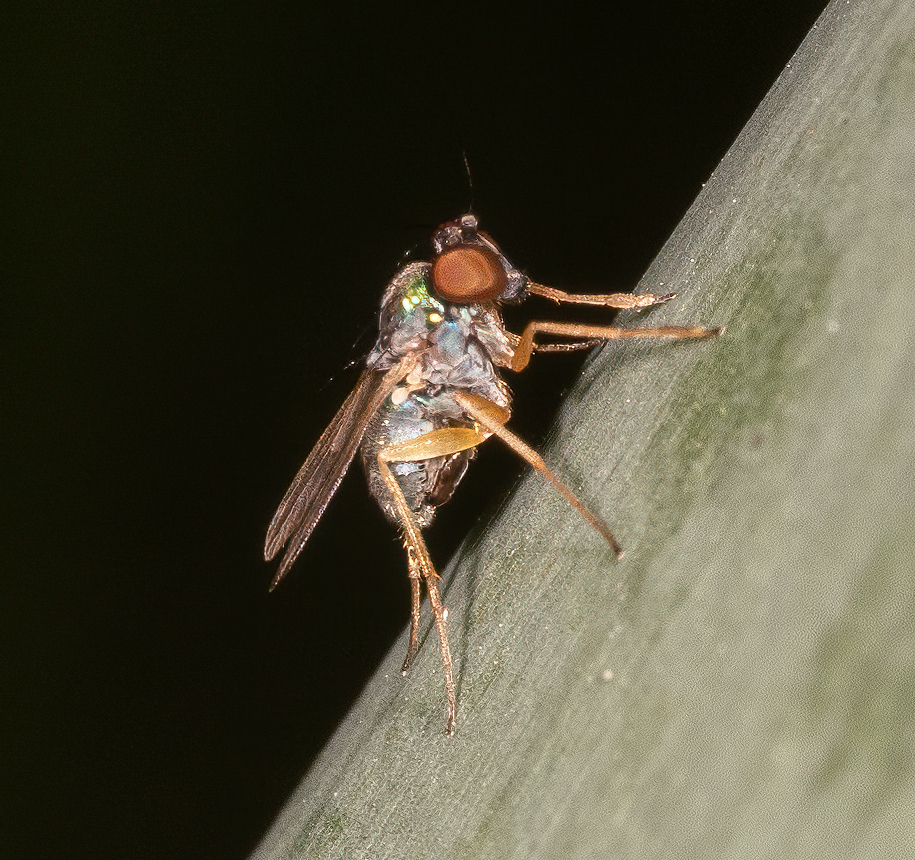Map Snapshot


1 Record
Seasonality Snapshot
Use of media featured on Maryland Biodiversity Project is only permitted with express permission of the photographer.
Medetera aberrans in Montgomery Co., Maryland (6/17/2024). (c) Jim Moore (Maryland), some rights reserved (CC BY-NC).
View Record Details
Media by
Jim Moore.
Medetera aberrans in Montgomery Co., Maryland (6/17/2024). (c) Jim Moore (Maryland), some rights reserved (CC BY-NC).
View Record Details
Media by
Jim Moore.
Source: Wikipedia
| Medetera aberrans | |
|---|---|
| Scientific classification | |
| Domain: | Eukaryota |
| Kingdom: | Animalia |
| Phylum: | Arthropoda |
| Class: | Insecta |
| Order: | Diptera |
| Family: | Dolichopodidae |
| Genus: | Medetera |
| Species: | M. aberrans
|
| Binomial name | |
| Medetera aberrans Wheeler, 1899
| |
| Synonyms[1] | |
| |
Medetera aberrans is a species of long-legged fly in the family Dolichopodidae.[1][2][3][4] It is distributed in Eastern North America. Adults of the species are generally colored a metallic green, with yellow legs. Not much is known about the biology of the species, but adults have frequently been collected from wet grasslands or marshes.[5][3]
In Bickel (1985)'s revision of the genus Medetera in the Nearctic realm, M. aberrans is included as a member of the aberrans species group.[5][3] Alternatively, this species group has been treated as a separate genus, Saccopheronta.[6]
References
[edit]- ^ a b "Medetera aberrans Report". Integrated Taxonomic Information System. Retrieved 2019-09-23.
- ^ "Medetera aberrans". GBIF. Retrieved 2019-09-23.
- ^ a b c "Medetera aberrans species Information". BugGuide.net. Retrieved 2019-09-23.
- ^ Pollet, Marc A. A.; Brooks, Scott E.; Cumming, Jeffrey M. (2004). "Catalog of the Dolichopodidae (Diptera) of America North of Mexico". Bulletin of the American Museum of Natural History. 2004 (283): 1–114. doi:10.1206/0003-0090(2004)283<0001:COTDDO>2.0.CO;2.
- ^ a b Bickel, D. J. (1985). "A revision of the Nearctic Medetera (Diptera: Dolichopodidae)". Technical Bulletin (1692). United States Department of Agriculture: 1–109. doi:10.22004/ag.econ.309598. ISSN 0082-9811.
- ^ Grichanov, I.Ya. (1997). "Four new species of Saccopheronta Becker (Diptera: Dolichopodidae) from Tropical Africa with notes on the world fauna of the genus". International Journal of Dipterological Research. 8 (3): 123–134.

